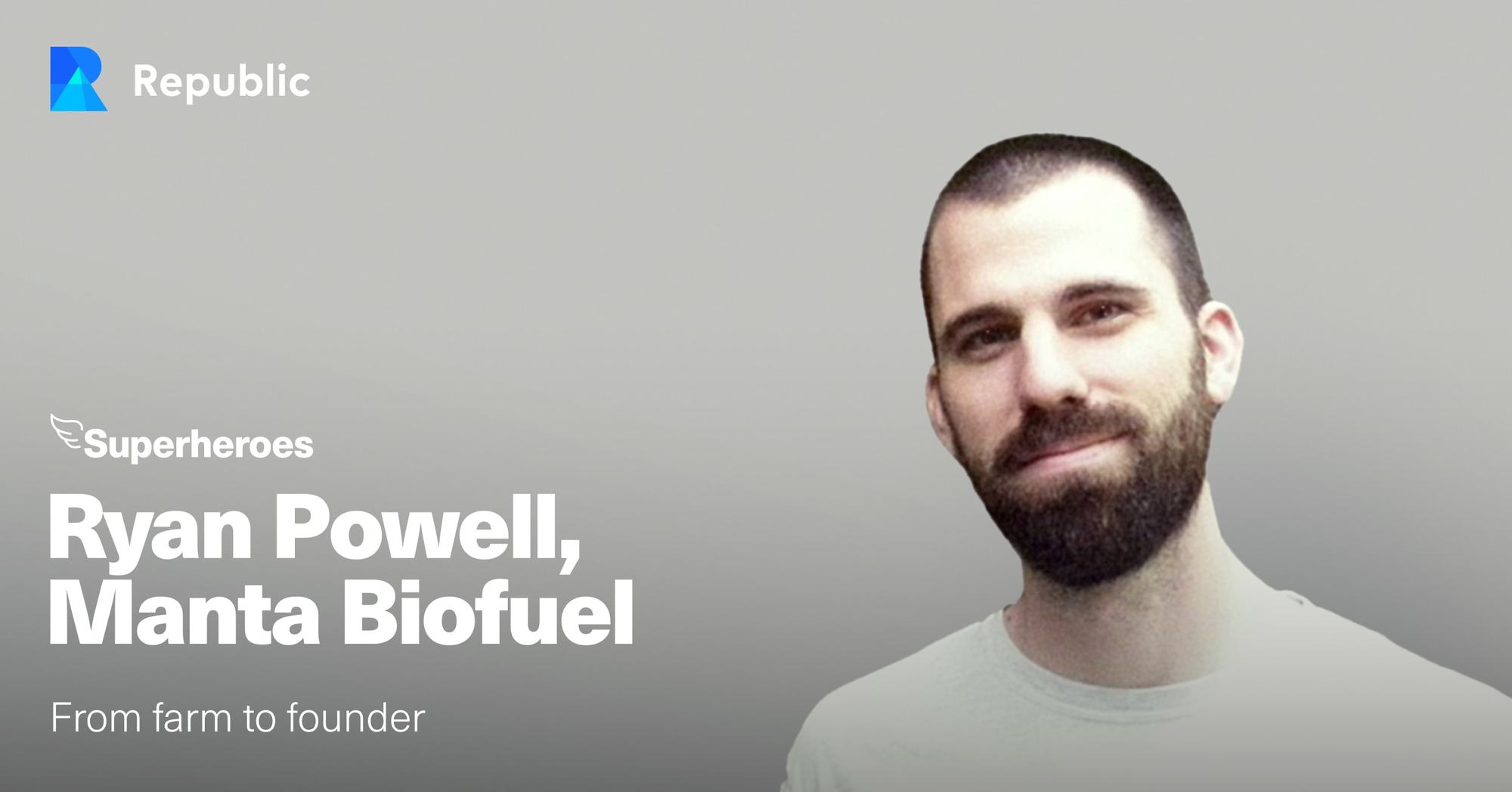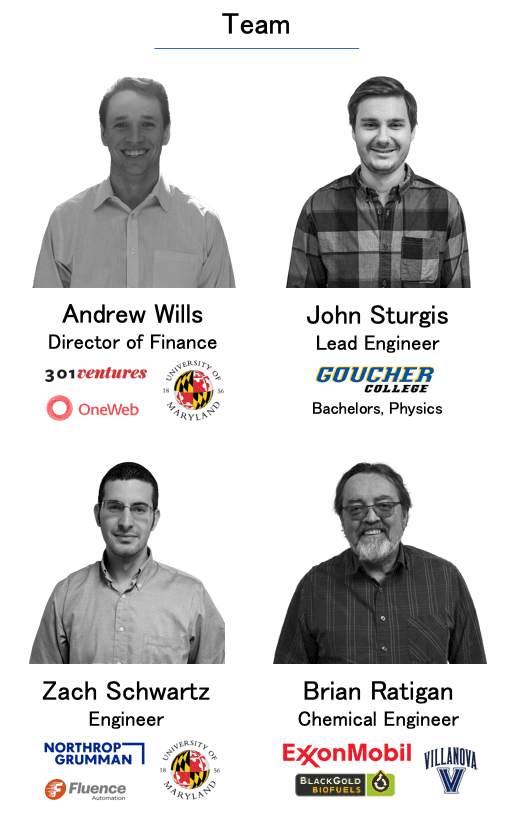The Energy Department's Cleantech University Prize competition traveled to the campus of Carnegie Mellon University in Pi...
Problem
Climate change is causing significant damage to society and the environment

The United States alone consumes nearly 1 billion gallons of fossil fuel every single day, emitting 300 trillion pounds of CO2 annually. The effects of climate change will only get worse if we do not act urgently and replace fossil fuels with a sustainable and economically viable alternative.
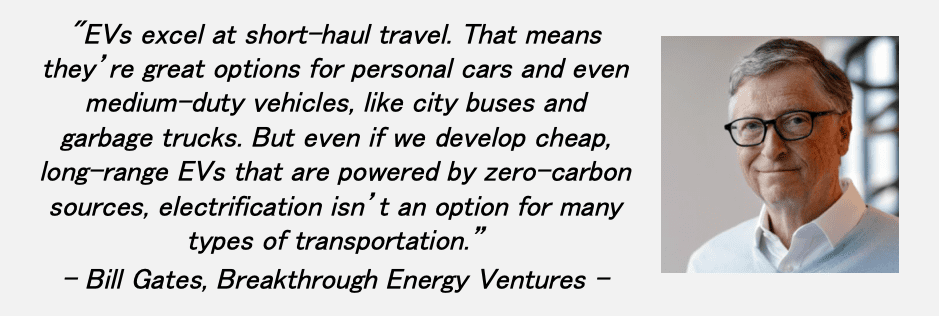
Despite the impressive adoption of electric vehicles, solar and wind, we are still highly dependent on fossil fuels: over 80% of our energy comes from fossil fuels, and no electric solutions currently exist for long-distance air travel, shipping, and heavy industry.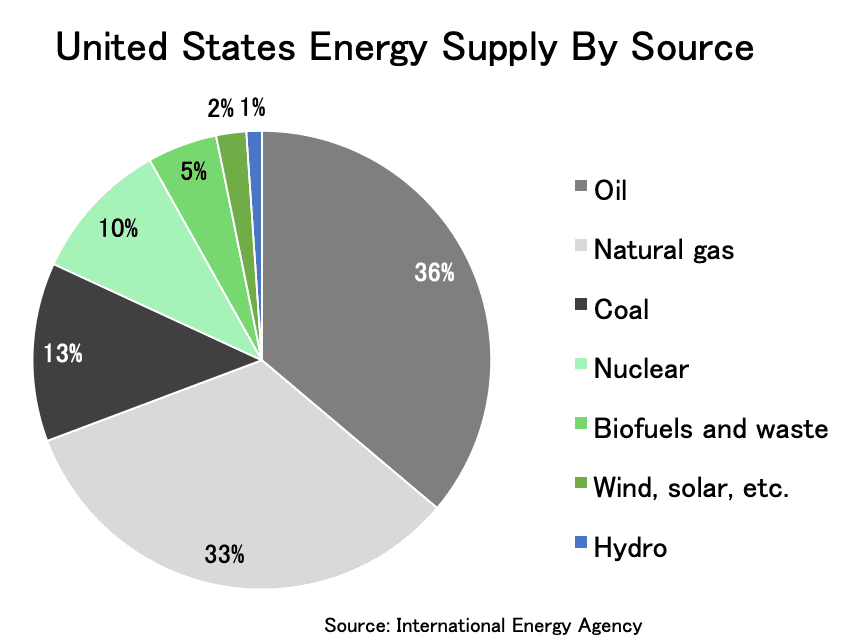
Solution
Manta Biofuel: producing renewable fuel from algae
We're using algae to make a cost-competitive, renewable replacement for crude oil.
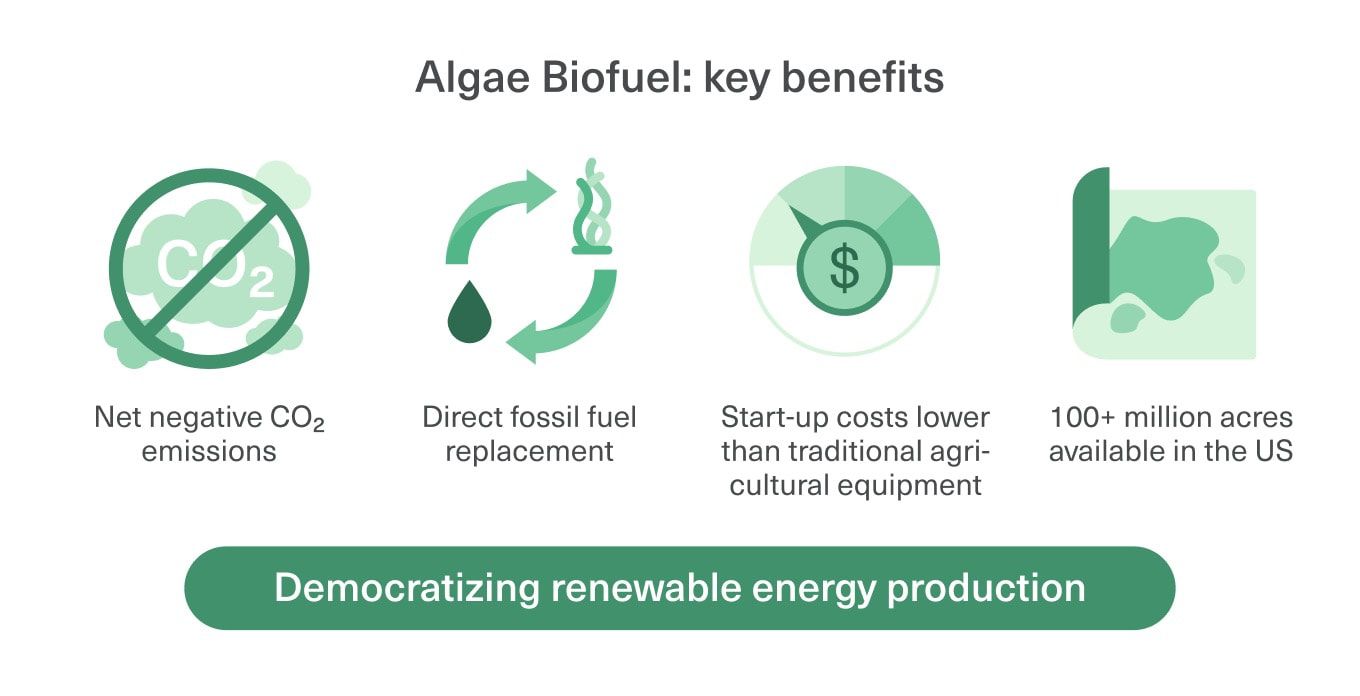
Our approach is radically different. Other companies have failed to produce biofuels cheaply enough because they grow algae in expensive, highly-controlled environments. This approach isn't economic or scalable.
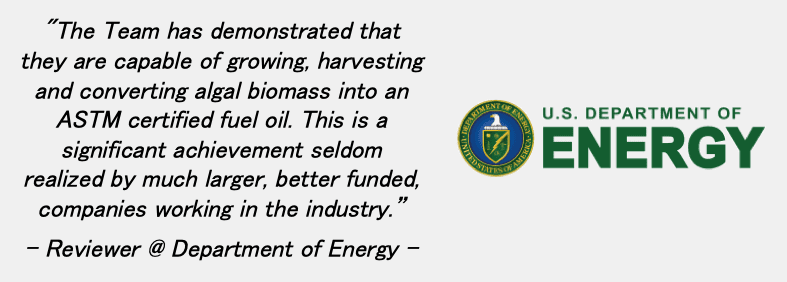
At Manta, we’re taking inspiration from agriculture to make a system that’s scalable, reliable, and cost-effective. Our approach allows us to scale production with independent farmers, democratizing clean energy production. We’re farming algae, instead of manufacturing it.
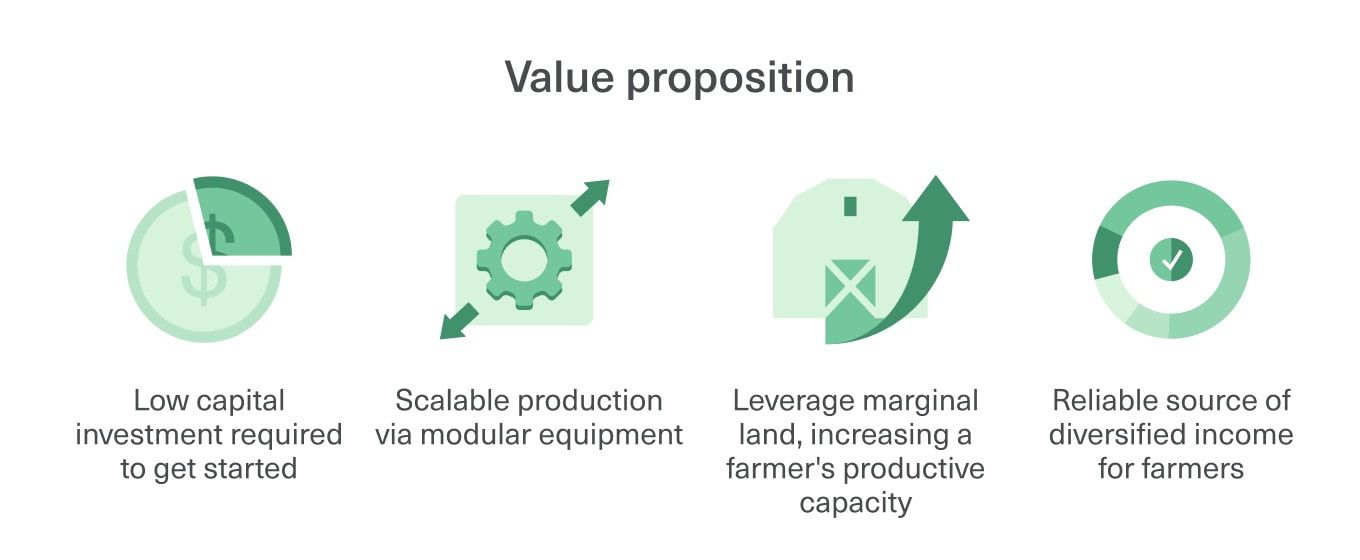
Product
Re-inventing liquid fuels, renewably this time
Our algae-based oil can be used to make renewable replacements for all of the products that come from fossil fuels such as renewable gasoline, jet fuel, asphalt, bunker fuel, and heating oil.
Over the past 6 years, we have developed our patented, state of the art algae-to-oil production process. Our biofuel production process has three simple steps: (1) grow, (2) harvest, (3) convert.
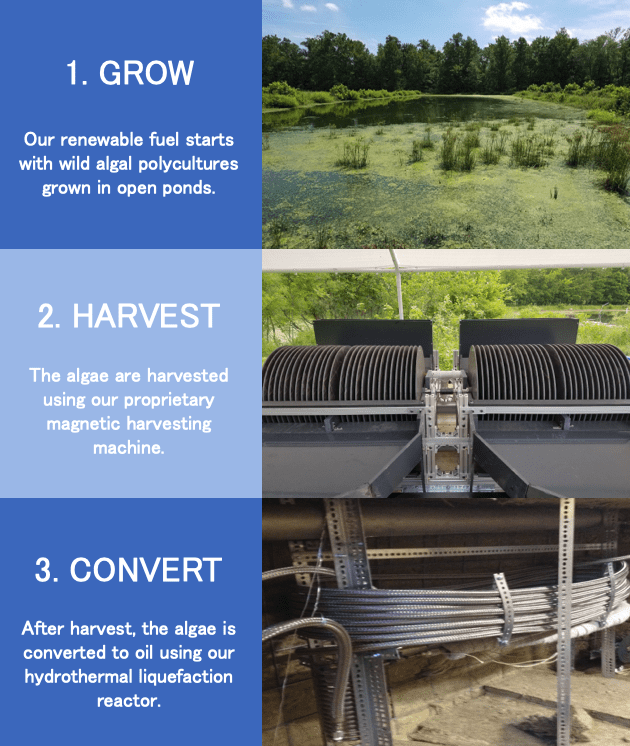
At scale, our system will be fully automated, connected to the cloud via IoT sensors, and leverage our patented magnetic nanoparticles shown below to harvest the algae.
The above harvest process has been incorporated into a full scale machine that can continuously harvest over 200,000 gallons of algae per day.
Traction
First sale in 2018
We complete our first sale in 2018 to a Maryland homeowner. Initial results were so successful that the users agreed to permanently switch to Manta Biofuel.
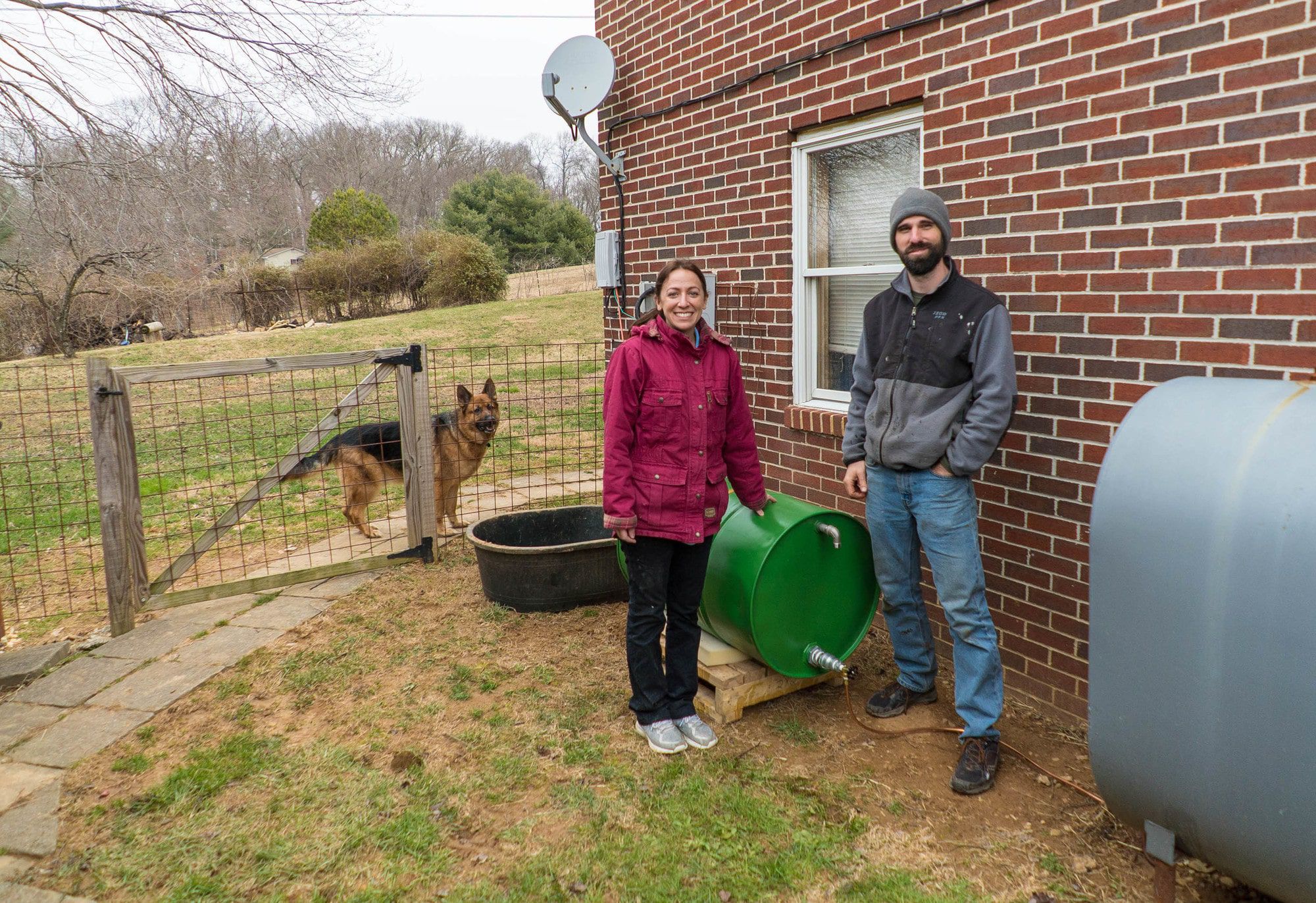
Significant third-party validation
Since 2016, Manta has won $2.2 million in non-dilutive grant funding from the Department of Energy. The Department of Energy has an incredibly high bar for technical potential, and represents the gold standard for third-party validation.

In addition, we have been competitively selected into two cleantech accelerators backed by the State of Maryland:

And were finalists in the Department of Energy Clean Energy Challenge:
Extensive testing by Alcor Petrolab has shown our renewable oil to meet all specifications for use as heating oil.

Customers
Signed LOIs with University of Maryland
We've secured two letters of intent to sell 240,000 gallons of renewable oil to the University of Maryland and the University of Maryland Center for Environmental Science. This represents a $1 million revenue opportunity. The University of Maryland, like many other higher education institutions, has aggressive climate change goals and serves as the perfect initial customer.

Building on early interest in our product, we have continued to grow our pipeline to over 50 qualified leads, including Bucknell University and Franklin & Marshall College.
Business model
Staged go-to-market strategy
Initially, we are targeting small, local customers with strong sustainability goals. This includes households and businesses who purchase 100 to 100,000 gallons of heating oil at a time.
Our first customers are east coast universities who cannot meet their heating and power needs with electric-only solutions like heat pumps.
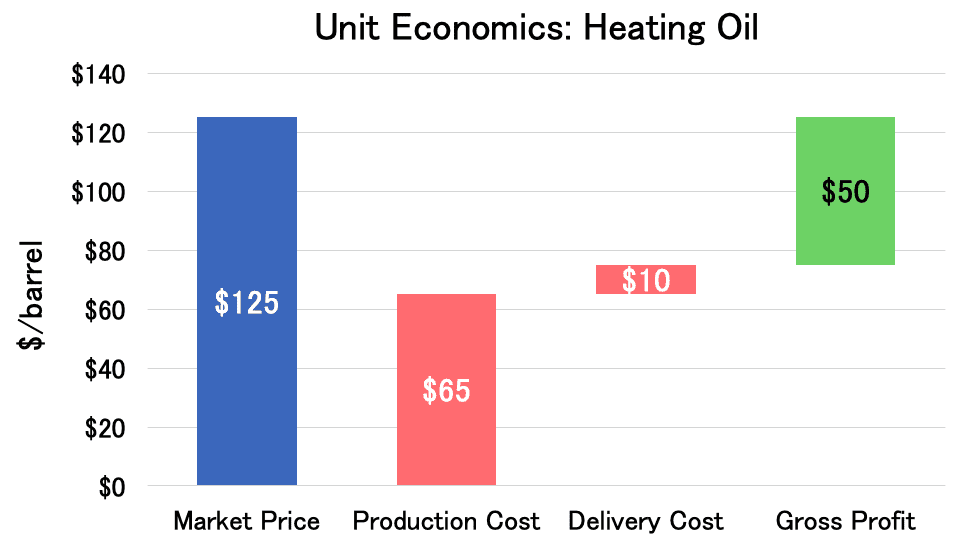
As production volumes grow, we'll enter larger markets such as marine fuels, heavy industry, and oil refineries. Replacing fossil fuel at the refinery level allows us to decarbonize our economy without trillions of dollars of infrastructure overhaul.
Decentralized scale-up plan accelerates revenue growth and democratizes energy production
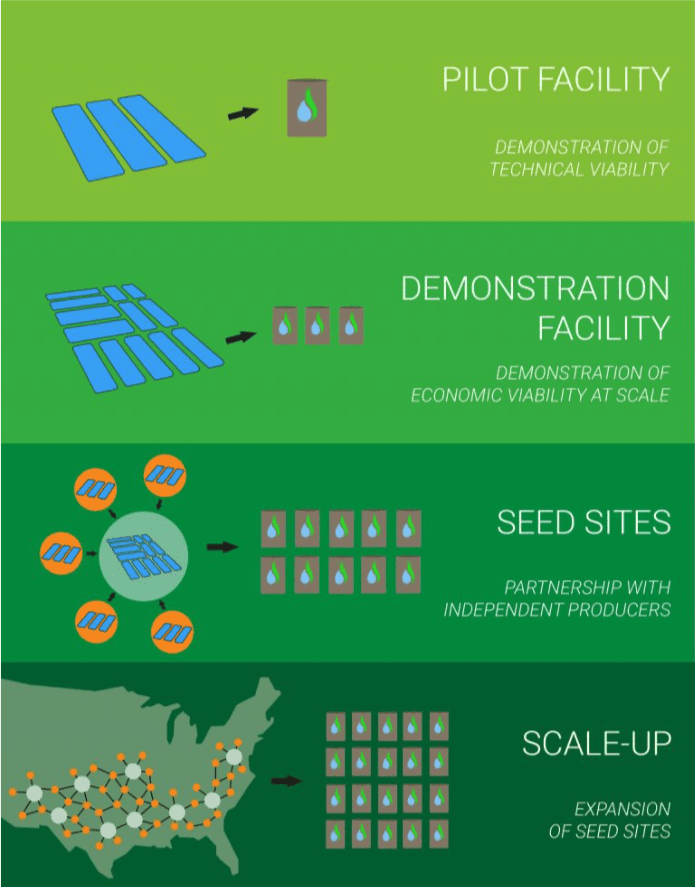
Market
$2 trillion addressable market
Our unique technology enables us to sell into a variety of markets. We are starting with heating oil, a $10 billion opportunity.

As we scale, we will expand into industrial markets and then crude oil. Because electric solutions do not exist in all of these markets, renewable crude oil is the only way to fully decarbonize the economy.
 A container ship consumes 2 million gallons of oil in just one trip from China to the U.S.! Given the massive growth of e-commerce, this market represents a $270 billion opportunity and 4% of global oil usage.
A container ship consumes 2 million gallons of oil in just one trip from China to the U.S.! Given the massive growth of e-commerce, this market represents a $270 billion opportunity and 4% of global oil usage.

U.S. refineries process 800 million gallons of crude oil per day. Replacing this with a carbon neutral fuel source is the key to fighting climate change.
Competition
High quality and cost effective
Unlike most of our competitors, our oil is cost competitive with fossil fuels. Other biofuels such as ethanol, biodiesel, and waste cooking grease require extensive subsidies, and are chemically different from fossil fuel, meaning they cannot eliminate fossil fuels from the economy.
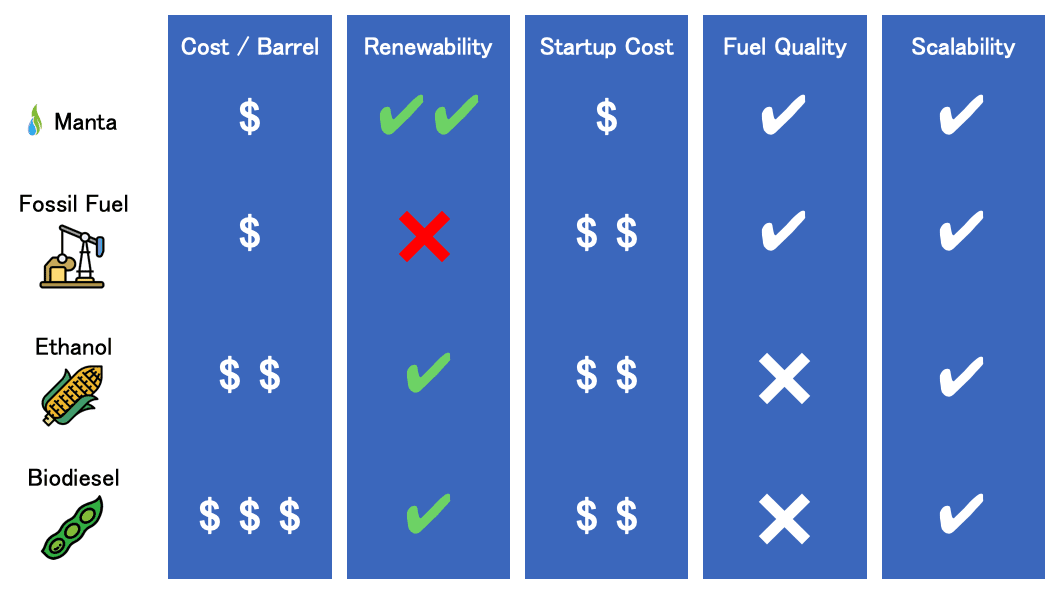
Vision and strategy
A world powered by algae

Our mission is to commercialize the production of biofuel made from algae, by making it cost-competitive for the first time in history. With our unique and scalable system, we envision a world where our energy sources are sustainable, energy is democratized, and where the planet is preserved for future generations.
Climate change is an enormous problem that many of us feel powerless to stop as individuals. Only with collective action can we hope to make a difference. Platforms like Republic now allow individuals to be part of the larger solution by investing in companies that are making a difference. Your investment in Manta Biofuel is a concrete step to help in the fight against climate change.
Funding
Backed by the U.S. Department of Energy
We’ve raised $3+ million in funding to date. Most of this has been non-dilutive from 3 rounds of investment from the U.S. Department of Energy. The Department of Energy is highly selective and only about 2% of technologies that apply receive all three rounds of investment. We have also received investment from the State of Maryland.
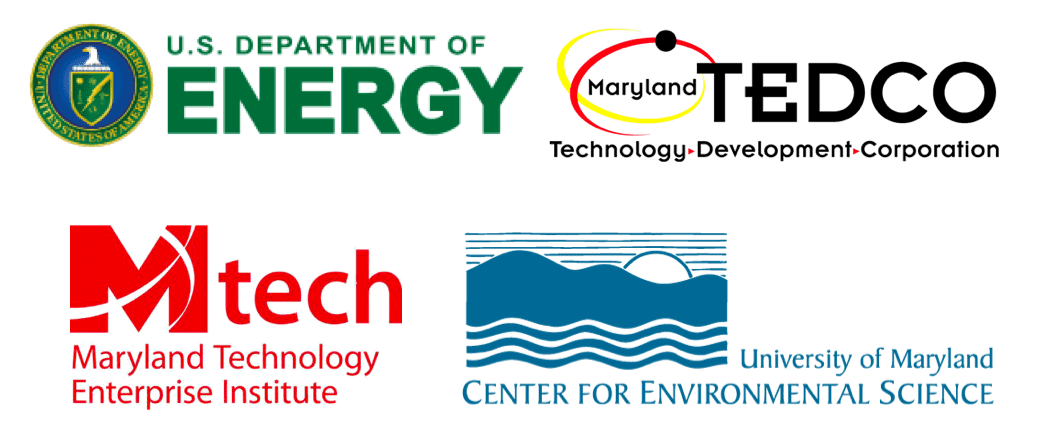







 Oops! We couldn’t find any results...
Oops! We couldn’t find any results...










